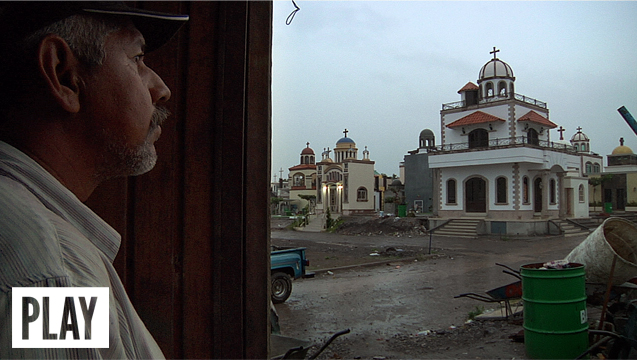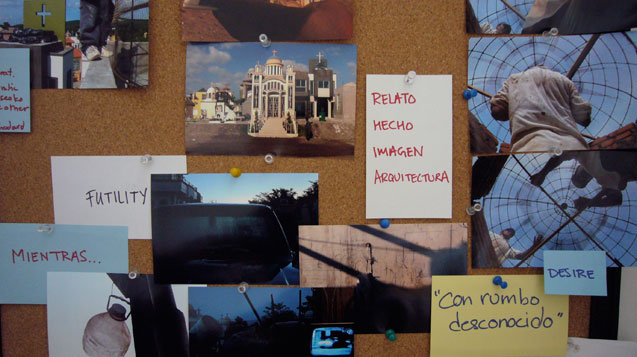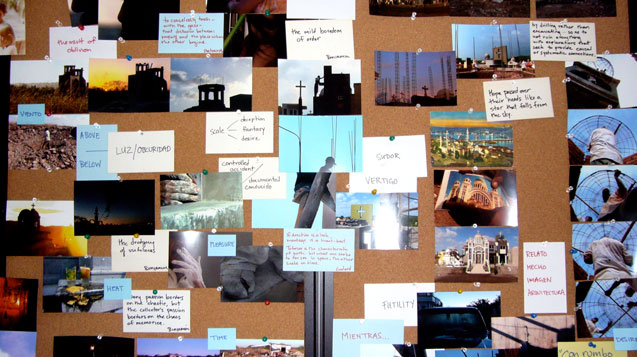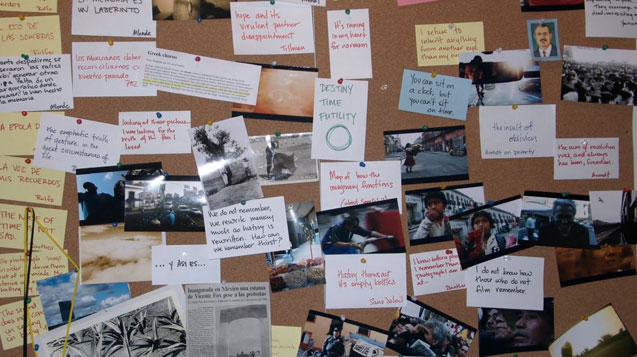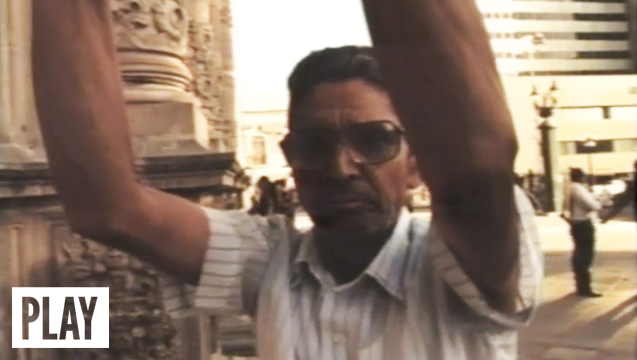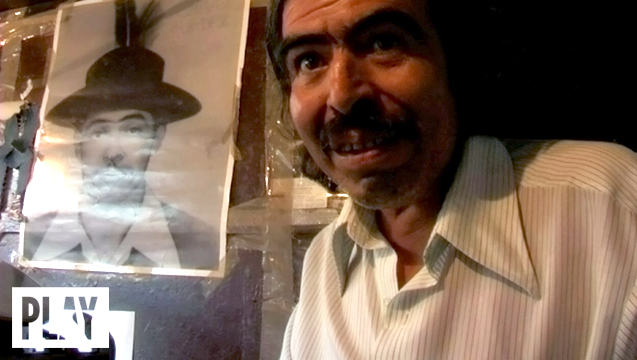LP
What direction is your work taking, with its visual poetry, intimacy and unapologetic cultural richness?
 Excerpt from ""El Velador"" (2011)
Excerpt from ""El Velador"" (2011)
NA
I think I'm happy that I don't really know the answer to this question... but I do hope that I can continue to push a boundary within myself. I don't want to become comfortable making films or find a formula 'that works' and get trapped in a certain kind of style or restricted to certain subjects.
Sometimes I feel like I am on the cusp of something - it is like having a word on the tip of your tongue or a kind of vertigo. I think it is usually between films when I am not fully engrossed in the production of one, but am somehow open to whatever may come next. It is a frightening and yet very rich moment in the creative process. I suppose it's not unlike what a painter told me, 'mixing the paint is what takes the most courage.'
I just hope that I will be like Louise Bourgeois or Agnes Varda and still be making things in my eighties... and have a life of work to look back on.
LP
Natalia, you give me a sense of the documentarian as an artist, explorer and adventurer; documentary has given women the opportunity to be all that. Do you feel the power to be not only creating but being on the edge of events? Still, for me, I feel there is always a sacrifice to be made, is that so for you?
NA
I think it is precisely someone like you who paved the road for a filmmaker like me, as a woman and as a Latina.
 Excerpt from ""The Devil Never Sleeps"" (1994)
Excerpt from ""The Devil Never Sleeps"" (1994)
I didn't have to question whether or not I had the right to be an artist, explorer and adventurer because I have role models who showed me that it was possible. I feel that it is my responsibility to continue on this path and not take it for granted; this goes back to the earlier question about being transparent and subjective. I refuse to erase who I am in a vale of objectivity that, usually, is just another way of reinforcing the dominant perspective as truth.
 Excerpt from ""El General"" (2009)
Excerpt from ""El General"" (2009)
It is without doubt empowering to make films. But I've never thought of myself as being on the edge of events. Rather, I think that documentary gives us the excuse to look, and forces us to pay attention to the details that often get lost in the noise of life.
We look through the lens when we shoot and then we look again and again at the footage as we try to shape it into something. In the looking I think we find or give meaning and value to what we see.
To me this is the most interesting when 'what we see' is not necessarily what society encourages us to look at. Then the looking can be a political act that can be subversive or revolutionary.
In what way do you mean that there is a sacrifice to be made?
LP
There are many sacrifices. The first one that comes to mind is that while searching for the truth, as documentary does, we sacrifice an illusion, or it even might be a lie. When we dispel illusions in search of truth, not everyone will feel good about it, and sometimes we have to deal with the consequences. Just as you have said, 'what we see is not necessarily what society wants us to see.' I could not agree more. So that gaze that we engage in is dangerous, and we sacrifice complacency and illusion.
